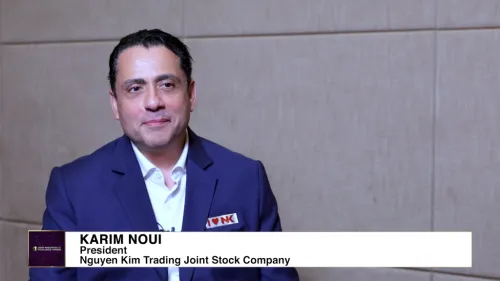Thailand to welcome 2 million South Korean tourists for Chuseok holidays
Thailand attracts South Korean tourists with food, K-pop, and visas.
Thailand is preparing to welcome around 2 million South Korean tourists during the Chuseok holidays this year, driven by a mix of cultural appeal and strategic initiatives.
According to Dr. Guy Llewellyn, Assistant Professor at EHL Hospitality Business School Singapore Campus, Thailand’s culinary similarities with South Korea and the popularity of K-pop have played a significant role.
The ease of travel is another contributing factor, with South Korean tourists benefitting from visa exemptions. “The visa exemption that they can go in for 30 days, and then renew it for an additional 30 days, has really strengthened South Korean interest in Thailand,” Dr. Llewellyn said.
Satarupa Halder, Senior Research Analyst at Mordor Intelligence, highlighted additional measures being taken to accommodate the influx of South Korean tourists. “The civil office of the Tourism Authority of Thailand has been rolling out chartered flights to Bangkok, Phuket, and Chiang Mai, making it more accessible for these tourists.”
In 2023, Thailand’s GDP grew by 1.9%, with projections for further growth to 2.4% in 2024 and 2.8% in 2025. During Chuseok, tourists are expected to spend around 40,000 to 50,000 baht per trip, providing a major economic boost.
However, managing the sheer volume of tourists is crucial. “Thailand has been facing challenges of overcrowding and environmental strain, particularly in popular destinations like Bangkok and Phuket,” said Halder. To mitigate these issues, Thailand is focusing on developing regional tourism and improving infrastructure to distribute the tourist load.
“The World Economic Forum just dropped [Thailand’s] rankings in the Travel and Tourism Development Index from 36 to 47, largely due to concerns about over-tourism,” noted Dr. Llewellyn. Thailand is promoting regional destinations and investing in highways and railways to connect remote areas with major cities. This approach is expected to ease pressure on popular spots while boosting the local economies of lesser-known regions.
Looking ahead, Thailand’s government is also investing USD 19.4 billion into 150 transport infrastructure projects by 2025. “Thailand is positioning itself as a premier tourism hub with the launch of Thailand Vision 2030,” Halder concluded, stressing the need for upskilling the hospitality workforce to maintain high standards amidst rising tourism levels.

















 Advertise
Advertise






Commentary
Ingredients take centre stage for Asian consumers across food and beverage purchases
Human Sparsity Blockchain: A citizen-validated ledger for digital finance supervision